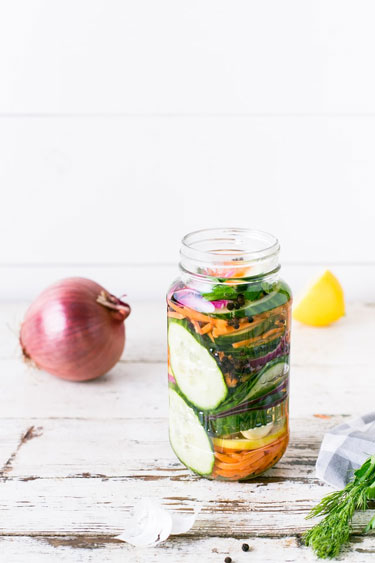Gut Health - Immunity in Porirua NZ

Fermented Foods - Immunity
Naturally fermented foods are getting a lot of attention from health experts these days because they may help strengthen your gut microbiome—the 100 trillion or so bacteria and microorganisms that live in your digestive tract. Gut health is responsible for putting our body into working order. As it breaks down the foods we eat, our gut absorbs nutrients that support our body’s functions — from energy production to hormone balance, skin health to mental health, and even toxin and waste elimination.
In fact, about 70 percent of the immune system is housed in the gut, so making sure our digestive system is in tip-top shape can be key to addressing many of our bodily woes.
The gut microbiome in Porirua NZ
The term “gut microbiome” refers specifically to the microorganisms living in your intestines. A person has about 300 to 500 different species of bacteria in their digestive tract. While some microorganisms are harmful to our health, many are incredibly beneficial and even necessary to a healthy body. Having a wide variety of these good bacteria in your gut can enhance your immune system function, improve symptoms of depression, help combat obesity, and provide numerous other benefits.
Made up of lots of different cells and molecules all working together, your immune system is your body’s ‘policing’ method for monitoring and responding to foreign substances that are perceived as threats – such as infectious microbes and pathogens. Essentially, the healthier your immune system is, the better equipped your body will be at quickly fighting off disease and infections.
THE RELATIONSHIP BETWEEN YOUR GUT AND IMMUNE SYSTEM
With 70-80% of your body’s immune cells found in the gut, there’s plenty of evidence(1) to show that your gut and immune system work together closely to regulate and support each other. Specifically, while your immune system promotes the growth of beneficial gut bacteria, a healthy gut microbiome sends signals back to your immune cells to support their development and fine-tune their immune responses.

Fermented Foods and Immunity
Fermented foods are preserved using an age-old process that not only boosts the food’s shelf life and nutritional value, but can give your body a dose of healthy probiotics, which are live microorganisms crucial to healthy digestion. The foods that give your body beneficial probiotics are those fermented using natural processes and containing probiotics.
Live cultures are found in not only yogurt and a yogurt-like drink called kefir, but also in Korean pickled vegetables called kimchi, sauerkraut, and in some pickles.
Although fermented foods may sound fancy, the practice of fermentation is actually simple and affordable. It only requires a few ingredients and when done at home, can save you a lot of money, while adding variety, new flavours and interesting textures to your diet. Vegetables such as cabbage, beetroot, radish, turnip and carrots are some of the easiest foods to ferment at home, as the bacteria living on the surface does the fermenting for you.

Spicy pickled vegetables (escabeche)
These spicy pickles are reminiscent of the Mediterranean and Latin American culinary technique known as escabeche. This recipe leaves out the sugar. Traditionally, the larger vegetables would be lightly cooked before pickling, but we prefer to use a quick fermentation method and leave the vegetables a bit crisp instead.
- 2 cups filtered water
- 1 to 1-1/4 tablespoons sea salt
- 2 tablespoons apple cider vinegar
- 1 jalapeño or a few small hot chiles (or to taste), sliced
- 1 large carrot cut into 1/4-inch-thick rounds or diagonal slices
- 1 to 2 cups chopped cauliflower or small cauliflower florets
- 3 small stalks celery (use only small inner stalks from the heart), cut into 1-inch-long sticks
- 1 bay leaf
- 1 cabbage leaf, rinsed
Warm the water (no need to boil). Stir in the sea salt until it dissolves completely. Set aside to cool (use this time to cut the vegetables). Add the vinegar just before using. The brine can be made ahead of time and stored in a sealed glass jar on the counter to use when ready to pickle.
Set a quart-size canning jar in the sink and fill it with boiling water to sterilize. Empty the jar and tightly pack the vegetables and bay leaf inside to within 1 to 2 inches from the top of the jar. Pour the brine over the vegetables to fill the jar to within 1 inch from the top. Wedge the cabbage leaf over the top of the vegetables and tuck it around the edges to hold the vegetables beneath the liquid.
Set jar on the counter and cover with a fermentation lid. (Alternatively, use a standard lid and loosen it a bit each day for the first few days, then every other day, to allow gasses to escape.) Let pickle for three to five days, depending on the indoor temperature. Check the taste after a couple of days, using clean utensils. Vegetables will pickle faster in warmer climates. Make sure the vegetables stay packed beneath the level of the liquid and add salted water (2 teaspoons sea salt dissolved in 1 cup warm filtered water) as needed.
When the vegetables are pickled to your liking, seal the jar with a regular lid and refrigerate. Vegetables will continue to slowly pickle in the refrigerator. They will keep for about one month. Taste for saltiness before serving and, if desired, rinse gently to remove excess salt.
References:
- https://ww:.ncbi.nlm.nih.gov/pmc/articles/PMC3337124/
- https://www.ncbi.nlm.nih.gov/pubmed/22356853
- https://www.ncbi.nlm.nih.gov/pubmed/25545101
- https://european-biotechnology.com/up-to-date/latest-news/news/western-diet-triggers-inflammatory-diseases.html
- https://www.ncbi.nlm.nih.gov/pmc/articles/PMC4034518/
OFFICE HOURS
Monday
9:30am - 1:30pm
Tuesday
7:00am - 6:00pm
Wednesday
9:00am - 6:30pm
Thursday
7:00am - 6:00pm
Friday
7:00am - 2:00pm
Saturday
8:00am - 2:00pm
Sunday
Closed
Chiropractic Balance
10/99 Mana Esplanade, Paremata,
Porirua, NZ 5026




